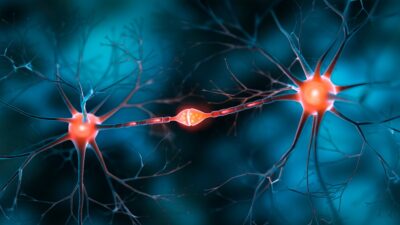The Facts and Fiction of the Movie Old
- A thriller where rapid aging is the deadly enemy a family faces.

I started to like sci-fi movies as a child, and I am still a fan. However the more I learn about science and technology, the harder it is to ignore inconsistencies and fantasy the producers present as facts in order to excite the viewer.
One can still try to enjoy the movie by not thinking about it. But in light of tremendous technological progress, separating facts from fiction has become a favorite game of mine, and today I want to play it with the movie Old that recently hit the screens. Let’s see what phenomena presented in the movie are real and which ones are fake!
There’s something wrong with this beach
The movie Old is a thriller produced by M. Night Shyamalan and released in 2021. It is based on the novel Sandcastle by Pierre Oscar Levy and Frederik Peeters. Spoiler alert!
Several families take a vacation in a luxury hotel in the tropics. The central family is pretty normal, with its problems like cheating, planning a divorce, fights, and secrets. Some medical issues are present as well. The family is invited to spend time on a secluded private beach, but when they arrive there, something seems wrong.
Children grow extremely fast, an old person suddenly dies and others experience the horror of accelerated aging. They try to leave the beach but at the end after countless efforts most members of the group are destined to stay, get old, and die of an age-related disease. The only survivors are the former kids who end up returning to the outer world as 50-year-old adults after just one day and night on the mysterious beach.
What is true or false in the story told in the movie Old?
Time to play a game of true or false around some of the plot from the movie.
Accelerated aging exists. True or false?
True. There are several genetic mutations that predispose accelerated aging, and people suffering with related diseases have a greatly reduced lifespan. One of the most well-known diseases of this kind is progeria. People with progeria start to experience symptoms of age-related diseases in their early childhood and typically only live to around 15 years of age.
The plot of the movie Old implies that the accelerated aging can be caused by a natural environment – rocks with specific rare minerals. These rocks were radiating harmful magnetic fields or some other waves that caused accelerated aging. True or not?
True. While rocks that accelerate aging is somewhat far-fetched, the environment can have harmful effects on the way we age. As we know from the research on astronauts, radiation can cause damage to their DNA, which is one of the mechanisms of aging. DNA mutations lead to a faster than normal health deterioration. It is also true for pilots and people who fly very often, and people working with radioactive materials. Astronauts are protected by the metal walls of the spacecraft and suits, while direct exposure to radiation can lead to radiation sickness and death within weeks.
The travelers in the movie Old realized that they experience accelerated aging, and not only them but their kids as well are under threat of premature death. They were asking themselves if it was possible to find a cure against their condition, and concluded that it was impossible. There is no way to control or reverse aging – true or false?
False. While it was true in the context of the movie Old, in the real world, researchers of aging consider aging a modifiable factor and work on finding medications and therapies that would slow down and reverse biological aging. In animal studies, it is possible to slow down the progression of aging and reverse aging of specific systems, so the feasibility of age reversal is actually proven.
In some species like worms or yeast it was possible to prevent aging so effectively that the specimens remained healthy and lived 10 times longer than normal. Supplements like glucosamine, apigenin, quercetin, NMN, and NAD; drugs like metformin, sartans, and rapamycin; and therapies like stem cell or immune cell rejuvenation and transplantation are considered promising candidates to slow down human aging.
However, there were only a few successful human trials so far that lead to age reversal. On the other hand, there are over a hundred official clinical trials of therapies targeting the root causes of aging happening around the globe right now, and it is only a matter of time when some of them will succeed. You can visit lifespan.io/roadmap to learn more about the most promising scientific projects aimed at bringing aging under medical control.
In the movie Old, there were no fish or shellfish in the waters of the mysterious beach. The travelers thought that the influence of the beach was killing wildlife very fast, that is why it could not be found. Is it true that there are no species that could be resilient to aging?
False. There are many species that scientists call negligibly senescent, essentially they do not age. Because of their genetic layout, they are believed to remove damage caused by natural aging faster than it is accumulated. In other words, these species possess strong regeneration or protection against age-related diseases, and remain in a youthful state during their long lifespans. Among these species are several types of fish, shellfish and jellyfish as well as sea sponges, corals and trees. Certain tortoises are also believed to be negligibly senescent. So if a harsh environment existed that caused accelerated aging like in the movie Old, it could still be visited and maybe even populated by negligibly senescent animals.
At the end of the movie Old, the travelers learn that the owners of the age-accelerating beach are representatives of a pharmaceutical company running human trials of various drugs and therapies. They give those treatments to the visitors and then lure innocent people to the improvised experimental environment to find out the long-term effects of their candidate drugs as fast as possible. Does something like that exist in reality?
False. Generally, no. The scientific method for identifying new drugs is based on 2 principles, transparency and informed consent. The people must know enough about the trial and its potential risks and downsides before the trial begins. The only form of disguise that is regularly used by the medical researchers is the procedure of blinding and placebo control. Blinding means that the participants and the nurses administering the treatment don’t know if they are receiving placebo or a real drug.
If there is a selection of drugs tested against one another, they don’t know which drug this particular volunteer is receiving. This is done to avoid cognitive biases that would make the researchers see the results more positively than they should. But other than that, it is against medical ethics to deceive a participant of the trial. Deviation from this rule is rather an exception.
So, what to say in conclusion about the movie Old?
It is scary, it is exciting, and thought-provoking. I am glad that the production team decided to look at the problem of aging and show just how painful are the limitations placed by aging on the human experience. A family that didn’t have any time to resolve its issues.
People experiencing rapid development of age-related disease, willing to live but condemned to lose their lives all too fast. In a way, this movie speaks about our own destiny, unless we put more effort into medical research and develop rejuvenation biotechnology in our lifetime.







